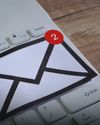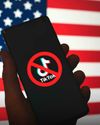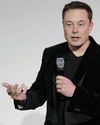
Hinton doesn't work at Google anymore. Nor did the longtime professor at the University of Toronto do his pioneering research at the tech giant.
But his impromptu party reflected Al's moment as a commercial blockbuster that has also reached the pinnacles of scientific recognition.
Then, early Wednesday (09), two employees of Google’s AI division won a Nobel Prize in chemistry for using AI to predict and design novel proteins.
“This is really a testament to the power of computer science and artificial intelligence,” said Jeanette Wing, a professor of computer science at Columbia University.
Asked about the historic back-to-back science awards for AI work in an email, Hinton said only: “Neural networks are the future.”
It didn’t always seem that way for researchers who decades ago experimented with interconnected computer nodes inspired by neurons in the human brain. Hinton shares this year’s physics Nobel with another scientist, John Hopfield, for helping develop those building blocks of machine learning.
Neural network advances came from “basic, curiosity-driven research,” Hinton said at a press conference after his win. “Not out of throwing money at applied problems, but actually letting scientists follow their curiosity to try and understand things.”
Such work started well before Google existed. But a bountiful tech industry has now made it easier for AI scientists to pursue their ideas even as it has challenged them with new ethical questions about the societal impacts of their work.
One reason why the current wave of AI research is so closely tied to the tech industry is that only a handful of corporations have the resources to build the most powerful AI systems.
This story is from the {{IssueName}} edition of {{MagazineName}}.
Start your 7-day Magzter GOLD free trial to access thousands of curated premium stories, and 9,000+ magazines and newspapers.
Already a subscriber ? Sign In
This story is from the {{IssueName}} edition of {{MagazineName}}.
Start your 7-day Magzter GOLD free trial to access thousands of curated premium stories, and 9,000+ magazines and newspapers.
Already a subscriber? Sign In

AFTER DISASTERS, PEOPLE ARE ESPECIALLY VULNERABLE TO SCAMS. HERE'S HOW TO PROTECT YOURSELF
During natural disasters like wildfires and floods, scammers often emerge to prey on victims.

START TECH TIP: THE NEW YEAR WITH A CLEAN INBOX
The new year is always a good time to make a fresh start — including with your email inbox. To kick off 2025 with a clean slate, why not clear out all those unnecessary and unwanted messages?

SUPREME COURT SEEMS LIKELY TO UPHOLD A LAW THAT COULD BAN TIKTOK IN THE U.S.ON JAN. 19
The Supreme Court seemed likely to uphold a law that would ban TikTok in the United States beginning Jan. 19 unless the popular social media program is sold by its China-based parent company.

TIKTOK COULD BE BANNED THIS MONTH.HERE'S WHAT USERS CAN DO TO PREPARE
TikTok has cemented itself as a quintessential entertainment app, offering everything from funny skits and makeup tutorials to social commentary and news.

AMAZON IS ENDING ITS 'TRY BEFORE YOU BUY' OPTION FOR PRIME MEMBERS
Amazon is saying goodbye to “Try Before You Buy.”

CAN AI HELP HUMANS UNDERSTAND ANIMALS AND RECONNECT WITH NATURE? A NONPROFIT RESEARCH LAB THINKS SO
Peeps trickle out of a soundproof chamber as its door opens. Female zebra finches are chattering away inside the microphone-lined box. The laboratory room sounds like a chorus of squeaky toys.

AGING WELL MEANS HAVING GOOD BALANCE.HERE'S HOW TO PRIORITIZE IT
Taking a shower. Grocery shopping. Moving around the kitchen. Getting dressed. The underappreciated link between these mundane activities is good balance, which geriatricians say is key to maintaining an independent lifestyle as we age.

NASA PROPOSES CHEAPER AND QUICKER WAY TO GET MARS ROCKS AND SOIL TO EARTH
NASA is pitching a cheaper and quicker way of getting rocks and soil back from Mars, after seeing its original plan swell to $11 billion.

ELON MUSK SAYS A THIRD PATIENT GOT A NEURALINK BRAIN IMPLANT. THE WORK IS PART OF A BOOMING FIELD
Elon Musk said a third person has received an implant from his brain-computer interface company Neuralink, one of many groups working to connect the nervous system to machines.

GOOGLE FACES MORE SCRUTINY AS UK WATCHDOG FLEXES NEW DIGITAL COMPETITION POWERS
Britain's competition watchdog flexed new digital market powers for the first time with an investigation into Google's search and search ad businesses.